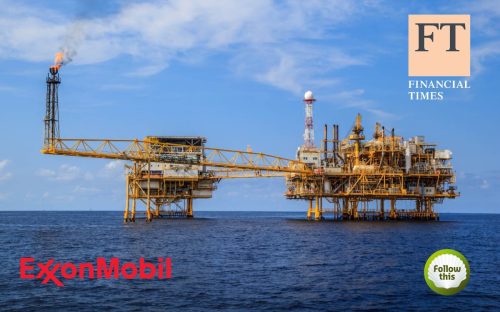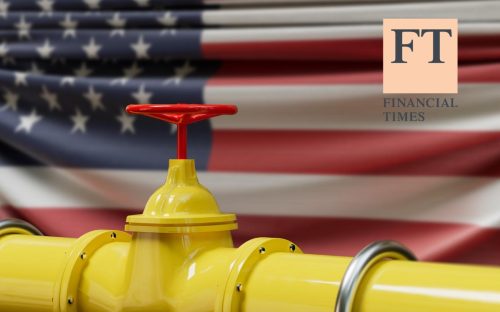- Dividend to increase by 15% to $0.33 per share; 70% of pre-pandemic levels of $0.47
- Oil major will only invest in renewables that have returns comparable to those of fossil fuels
PRESS RELEASE
Shell will grow its fossil fuels business in spite of the global pledge to cut emissions by around 45% by 2030 to achieve the Paris Climate Agreement; the oil major will “stabilize liquids production to 2030” and “grow its […] gas business” it announced in a press release today.
“Shell’s growth in fossil fuels is on a collision course with the Paris Climate Agreement which calls for almost halving CO2-emissions by 2030,” responds Mark van Baal, founder of Follow This.
“The new CEO Wael Sawan would not dare to grow Shell’s fossil fuels business if more institutional investors had voted in favour of the Follow This climate resolution requesting Paris-aligned targets.” In May, votes in favour of the climate resolution stabilized at a shareholder rebellion of 20%. “Shell still has to answer these 20%.”
Captivated by high oil price
“Shell is increasing reliance on fossil fuels because the company and its shareholders are captivated by current profits from high oil and gas prices. They ignore the costs of climate disasters like floods, droughts and extreme weather, which will dwarf current profits.”
“Shell ignores the opportunities of the energy transition and the risks of abrupt policy interventions, litigation, liability for the costs of climate change, disruptive innovation, and stranded assets. According to Carbon Tracker, two thirds of fossil fuel reserves must remain in the ground to stay within 1.5°C.”
“Fossil fuel growth delays the transition and increases the risk of a carbon lock-in, which will make it harder to pivot to renewables with each year.”
Wake-up call
“We hope Shell’s pivot back to fossil fuels is a wake-up call for institutional investors who voted against Paris-alignment at the annual shareholders’ meeting last month.”
“Shell’s increase of fossil fuels output is a knee-jerk reaction to short-term shareholders as long-term shareholders look on and climate risks surge. Eighty percent of the shareholders enable Shell to postpone emissions reductions until after 2030 by voting against Paris-alignment.”
Stewards of the global economy
“Investors have much more to worry about than the return on capital of oil majors. They have to worry about the returns of their entire portfolio in the global economy, and these are in great danger if the world fails to reach the goal of the Paris Accord.”
“As stewards of the global economy, investors have to decouple short-term profits from long-term climate risks and step up.” Read our op-ed in the Financial Times.
Correlation votes and climate ambitions
“The correlation between votes and climate ambitions is clear. Since 2016, when votes in favour of the Follow This climate resolution increased, Shell set and advanced climate goals several times. Therefore, it’s no surprise that Shell slows down climate action after the votes decreased from 30% to 20% in 2022 and 2023.”
Shell seeks double-digit returns in renewables
The oil major will invest in “low carbon energy solutions” with “profitable business models” and “the highest returns”, the company states in the press release.
Earlier, Shell said it will only invest in renewables if the returns are comparable to those of oil and gas.
“The handsome carbon-based business model will be over as soon as fossil fuel companies will have to pay for climate damage. Shell should use the current windfall profits to explore new business models instead of more oil and gas.
“Shell’s attitude shows a lack of imagination beyond oil and gas, and failure to understand the concepts of disruptive innovation and stranded assets.” says Mark van Baal, founder of Follow This.
Returns from oil and gas typically range between 10% to 20%, while those for solar and wind projects tend to be between 5% to 8%, according to companies and analysts, Reuters reported.
Increase in dividend to 70% of pre-pandemic levels
Shell increases its dividend by 15% from $ 0.2875 to $ 0.33 per share per quarter, but this is still 30% below the pre-pandemic level of $0.47per share.
“Shell is trying to decrease the perceived value gap with ExxonMobil, which did not cut dividend during the pandemic.”
In May 2020, Shell cut dividends for the first time since the Second World War by two thirds from $ 0.47 to $ 0.16 per share. Since then, the company increased the dividend several times.
Share buy backs demonstrate a lack of ambition
“Share buybacks show a lack of ambition. A company that buys back shares is effectively saying to investors: ‘We know of no better use for this money than to return it to you’.”
Net zero by 2050
Shell’s reiteration of its commitment to net-zero emissions by 2050 is empty.
Shell states in the legal disclaimer of the press release its Climate Target: “Shell’s operating plans cannot reflect our 2050 net-zero emissions target and 2035 NCF target, as these targets are currently outside our planning period.”
Contradictory with Court Ruling
It is impossible to understand how Shell’s recently announced increase in its fossil fuel business is in line with the ruling from the Dutch court which requires to company to reduce its absolute scope 1,2, and 3 emissions by 45% by 2030.
“Shell is largely ignoring the court ruling.”
Shell scraps 1-2% annual reduction in oil production
The company has given up on its commitment of reducing oil production by 1-2% per year, claiming that they have already achieved the reduction they aimed to meet by 2030. It achieved this reduction by selling off its oil producing assets to other producers, who will continue to extract fossil fuels therefrom. This renders their commitment meaningless, as it will result in no reduction in global emissions.










